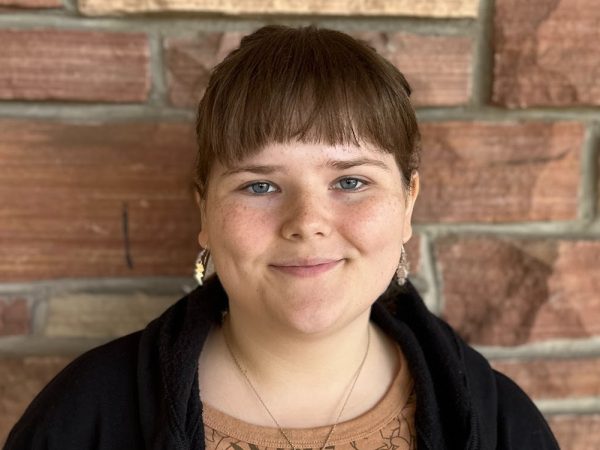Walking into the first Women’s Empowerment Club meeting of this school year, I was immediately drawn to the pastel-colored presentation with the words “Intersectional Feminism” featured as the title. Many people know the word “feminism”, but the addition of intersectionality may leave someone confused if they don’t see what this powerful term means. The word “feminism”, especially in recent years, has been met with widespread backlash, with TikTok creators criticizing the feminist movement, stating, “I’m not a feminist, I wear dresses,” and “I’m not a feminist, I actually know how to cook.” With March being Women’s History Month, it’s important to emphasize how feminism is more than just a movement to be constantly criticized. One of the major points of feminism represented at the Women’s Empowerment Club (otherwise known as WEC) at Boulder High School is an emphasis on Intersectional Feminism.
While interviewing Tyler Jacobs, ‘26, a co-president of the Women’s Empowerment Club and co-founder of The Period Pals Project, I asked her how she would define intersectional feminism. She described it as “a framework that considers how multiple forms of discrimination overlap and affect people’s lives. It’s a way to understand and address systemic inequalities while considering the different identities that can intersect to create unique experiences of oppression.”
This form of feminism has blossomed from originally exclusive origins within the feminist movement. For example, the famous Seneca Falls Convention excluded Black women from their efforts. With intersectional feminism, as Jacobs described, everyone is included in their hope to be treated more equitably in the face of discrimination. During my interview with Tyler Jacobs, I was interested in how she promotes intersectional feminism in Boulder. “This year, I am honored to be one of the co-presidents of Women’s Empowerment Club here at BHS, along with Lynley Sylvan. Through this club, we aim to create an atmosphere of equity and understanding towards feminism and what it stands for. In our very first meeting, we went over what intersectional feminism is, as well as the values that are central to feminism, and we have continued to build on this throughout the year.”
Understanding “Equity versus Equality” is another focus of Women’s Empowerment Club, as equality has been defined as treating everyone the same, while equity means that everyone is provided with assistance specific to their needs to be successful.
Jacobs continues, “Outside of school, I serve as the president and founder of a nonprofit organization called The Period Pals Project. This initiative is dedicated to advocating for menstrual health awareness and addressing the issue of period poverty. Through my work with the nonprofit, I have been actively involved in raising awareness about intersectional feminist issues and fostering a greater understanding of how they intersect with menstrual health. Through community outreach and direct communication with schools throughout Colorado, I aim to reduce stigma and provide access to essential resources for those in need.” The focus on supporting people affected by the patriarchy is one of the key parts of intersectional feminism to create a safe and equitable space for everyone to feel welcome.
On top of the discussion of how important intersectionality is in feminism, I wanted to address the topic of feminism in general and the misconceptions that surround the topic. “The main misconception about feminism I’d like to unravel is the idea that only women can be feminists. In truth, every person on earth can (and should) be a feminist. Feminism, at its core, is fighting back against the patriarchy – the system of social, economic, and political structures that put men above women – which is a structure that negatively impacts us all by creating harmful stereotypes and expectations for how people should live. Feminism is a movement that advocates for equity and respect for all people, regardless of gender. It’s about creating a more inclusive society where everyone has the same rights and opportunities,” added Jacobs.
Overall, Intersectional Feminism is an evolution of the feminist movement that promotes the equitable treatment of all people affected by the patriarchy. It promotes equity rather than equality and is a large step towards a more inclusive and positive approach to feminism.



